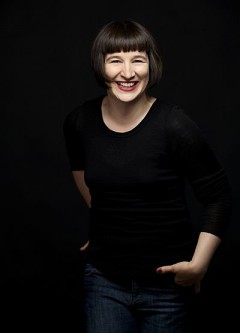 United States Richard Strauss, Salomé: Soloists of the Vienna State Opera, Vienna Philharmonic Orchestra, Andris Nelsons (conductor), Stern Auditorium, Carnegie Hall, New York, 1.3.2014 (SSM)
United States Richard Strauss, Salomé: Soloists of the Vienna State Opera, Vienna Philharmonic Orchestra, Andris Nelsons (conductor), Stern Auditorium, Carnegie Hall, New York, 1.3.2014 (SSM)

Concert Version
Cast:
Gun-Brit Barkmin, Soprano (Salomé)
Tomasz Konieczny, Bass-Baritone (Jochanaan)
Gerhard A. Siegel, Tenor (Herodes)
Jane Henschel, Mezzo-Soprano (Herodias)
Carlos Osuna, Tenor (Narraboth)
Ulrike Helzel, Mezzo-Soprano (Page)
Norbert Ernst, Tenor (First Jew)
Michael Roider, Tenor (Second Jew)
James Kryshak, Tenor (Third Jew)
Thomas Ebenstein, Tenor (Fourth Jew)
Walter Fink, Bass (Fifth Jew)
Adam Plachetka, Bass-Baritone (First Nazarene)
Marcus Pelz, Bass (Second Nazarene)
Dan Paul Dumitrescu, Bass (First Soldier)
Il Hong, Bass (Second Soldier)
Jens Musger, Bass (A Cappadocian)
Gerhard Reiterer, Tenor (A Slave)
Here’s a little-known fact that can vie with the most obscure statistic given by any sports announcer: this staging of Salomé was the 3000th performance of a Strauss opera by the Vienna State Opera. Perhaps it comes as no surprise then that Salomé was far and away the best showing to date by the Vienna Philharmonic ̶ the orchestra of the Vienna State Opera ̶ at Carnegie Hall’s “Vienna: City of Dreams” festival. After a somewhat lackluster series of concerts the VPO returned on Saturday night fired up and with a different conductor: Andris Nelsons, the new director of the Boston Symphony.
The reputation preceding the VPO’s appearances here has been that of a great orchestra which sometimes is not so great. Gramophone rated it the third best orchestra in the world, right behind the Berlin Philharmonic and the Royal Concertgebouw, yet added this caveat: “It must be admitted that the Vienna Philharmonic, for all its deserved fame, does not always sound like the best orchestra in the world. It plays too many concerts, for one thing…they can even sound brutal, like a second-rate symphony band. Sometimes the playing sounds boring…”
We sometimes forget that musicians are human, and that it’s difficult to avoid the effects of the circadian clock. An orchestra from Europe in New York even a few days before a concert might not be at their best if the concert begins at 8PM and one’s body clock says 2AM. I can’t speak for the second of the four VPO concerts this week, but there was a definite improvement from the first evening’s disappointing reading of Beethoven’s Ninth to a satisfying if not superb concert version of Wozzeck to a brilliant performance of Salomé.
Andris Nelsons turned up the heat on what is already one of the hottest operas ever written. All involved seemed to gather energy from one another, an energy that strengthened as the opera progressed to its inevitable finale. There were some unbalanced moments when the orchestra should have been more careful about overpowering the singers, but that can be excused when a conductor is perhaps not totally familiar with a venue’s acoustics or the strengths and weaknesses of the soloists. This happened with some of the male singers, in particular with an otherwise satisfying Tomasz Konieczny as Jochanaan. Less critical attention need be given to these imbalances when surtitles are available as they were here.
This concert performance was enhanced by placing the three main characters together on stage left, which allowed for some limited but meaningful interactions. The previous night’s Wozzeck employed a similar setup, but there the interaction was minimal, even though several opportunities presented themselves for Matthias Goerne as Wozzeck and Evelyn Herlitzius to face off.
Gerald A. Siegel as Herod was appropriately apoplectic, and Jane Henschel as Herodias, repeating the role she played in a 2012 production, bristled with glee as Salomé got the best of Herod. Gun-Brit Barkim as Salomé was by far the star of the opera, and her amazing performance received a good 10-minute standing ovation (which might have run longer had there been enough space on stage for all the principals to comfortably accept the cheers and bravos). The soprano, who has roots in the Komische Oper Berlin, was anything but comical here. Having that rare voice which must cover a range from low G-flat to B5, her obsessive cries for Jochanaan’s head raised the rafters. Only at the very end did her voice show a ragged edge, but still it was a tremendous feat.
Stan Metzger